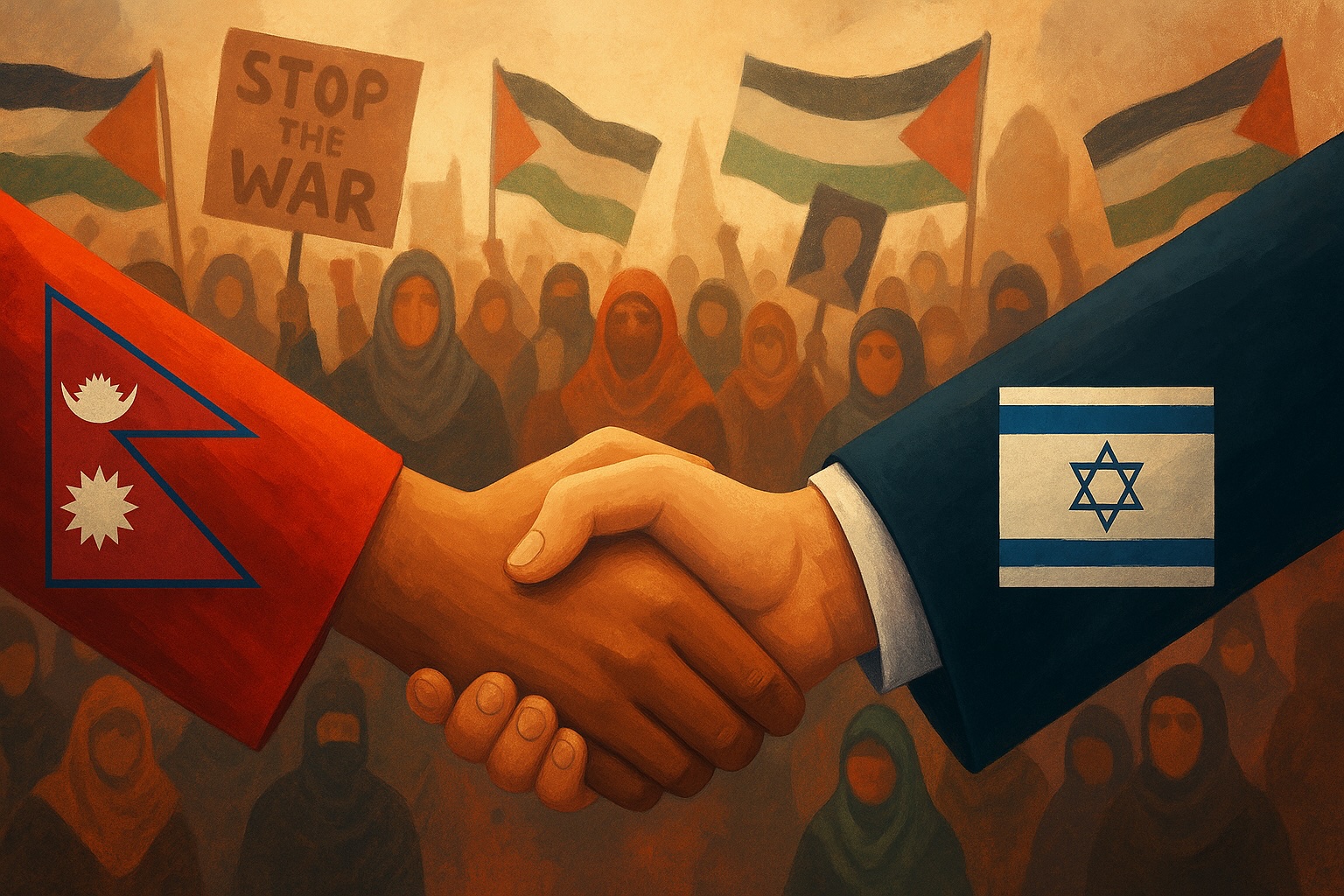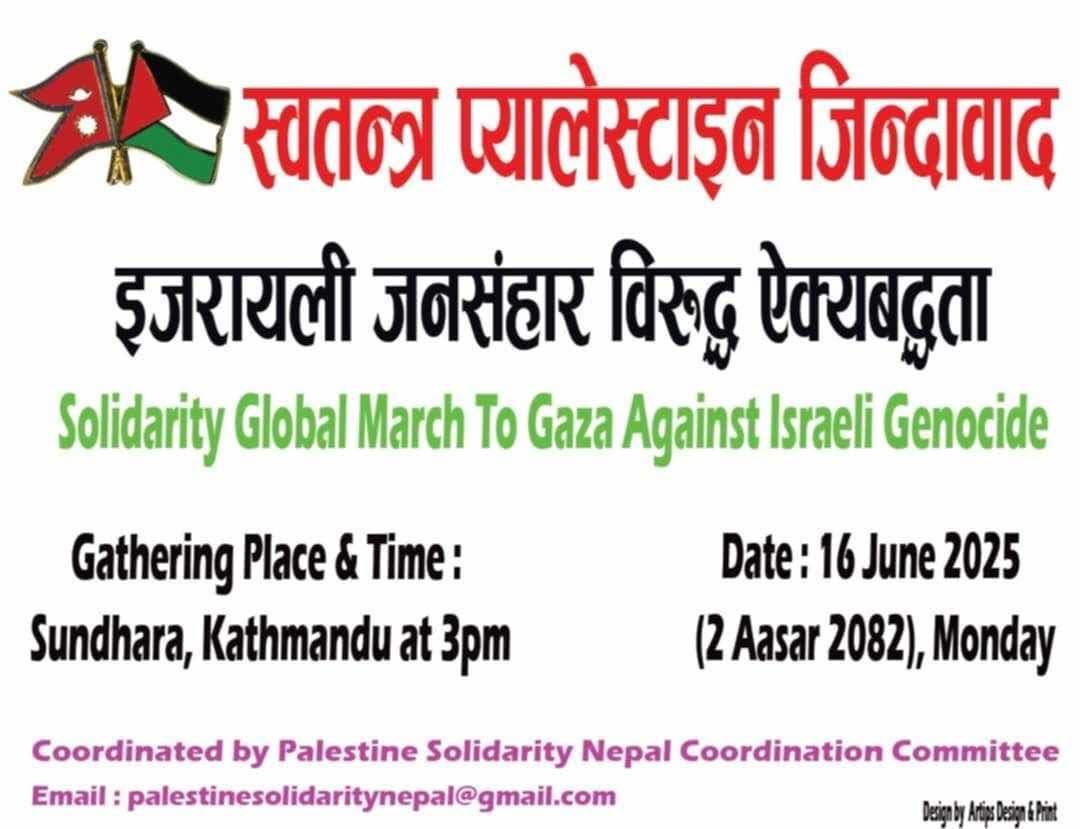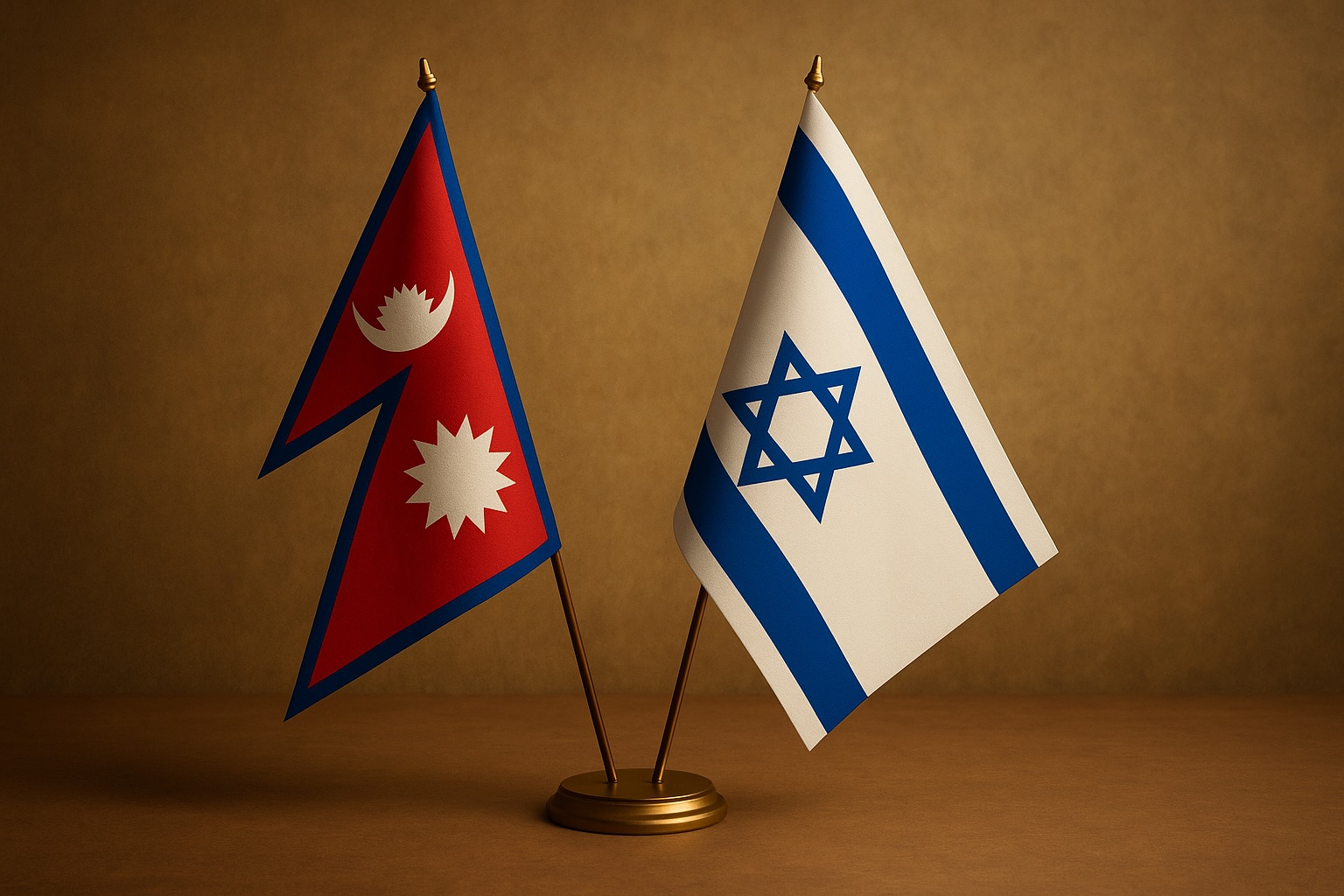Rising Extremism in Kathmandu? Protest Against Israel Raises Alarms Over Radical Influence in Nepal

Kathmandu — As Nepal prepares for a protest planned by the so-called Palestine Solidarity Nepal Coordination Committee on June 16, 2025 (Asar 2), serious concerns are emerging over the growing influence of radical leftist groups who appear to be steering public discourse in a dangerous direction. The scheduled protest at Sundhara, Kathmandu — framed as a "Global March to Gaza Against Israeli Genocide" — has alarmed civil society members, foreign policy analysts, and defenders of Nepal’s historic neutrality and diplomacy.
The provocative language used in the rally’s promotional materials — including phrases like “Israeli Genocide” and “Death to Israeli Imperialism” — has raised red flags not just for its inflammatory tone, but also for what it reveals: a pattern of political agitation rooted not in peace-building or humanitarian concern, but in ideological extremism.
Observers have pointed out that many of the groups behind the protest are affiliated with fringe communist factions known for promoting anti-West, anti-democratic, and authoritarian agendas. These groups have in the past aligned themselves with foreign regimes that oppose democratic norms, and their renewed activism under the banner of Palestine solidarity appears to be a calculated move to exploit an emotionally charged international issue to further their own radical narratives.

Even more concerning is the silence of these organizers on recent humanitarian tragedies in Nepal, such as the unresolved disappearance of Nepali student Bipin Joshi, who has remained missing for years with little public mobilization or concern from these so-called human rights advocates. Critics argue that the selectivity of outrage — loud on distant geopolitical conflicts but silent on domestic suffering — exposes the political motivations behind the movement.
Israel has been one of Nepal’s long-standing friends, supporting agricultural development, technology transfer, and medical training programs over the years. Turning hostile toward such a partner under the influence of radical groups is not only diplomatically unwise but potentially damaging to Nepal's reputation as a neutral, peace-loving nation.

A foreign affairs analyst told Nepal Aaja, “This kind of protest is not about peace or justice. It’s about manufacturing rage to revive the relevance of failed extremist ideologies. They are turning Nepal’s public spaces into a theater for imported hatred.”
The rally has not yet occurred, but the fact that such an event — filled with incendiary slogans and polarizing narratives — is being permitted in a sensitive diplomatic environment has prompted calls for greater scrutiny from the government and the public alike.
At a time when the world is grappling with polarization and violent extremism, Nepal must ask itself whether giving a platform to imported radicalism, especially when it undermines ties with friendly democratic nations like Israel, is a path worth walking. The coming days will reveal whether reason or rhetoric prevails — but for many, the writing on the wall already looks troubling.
Bipin Joshi Israel in Nepal
![From Kathmandu to the World: How Excel Students Are Winning Big [Admission Open]](https://nepalaaja.com/img/70194/medium/excel-college-info-eng-nep-2342.jpg)
